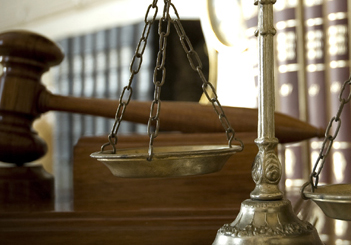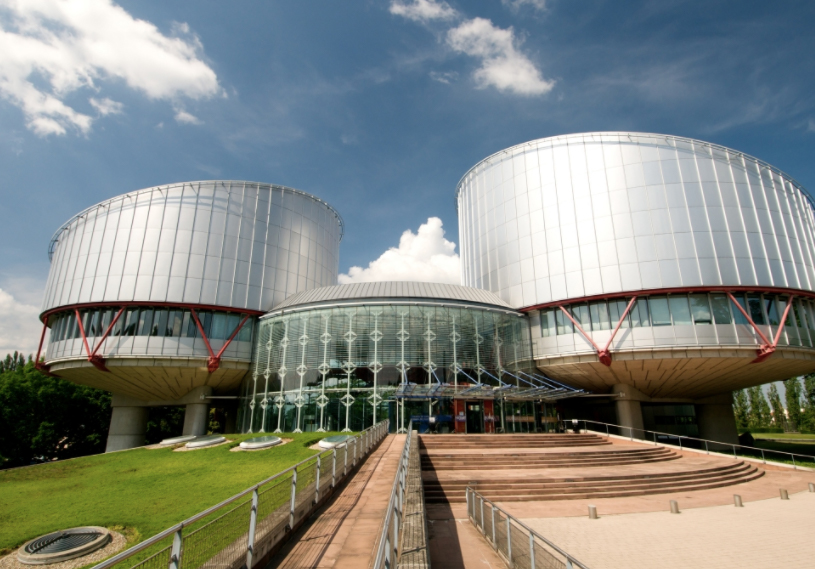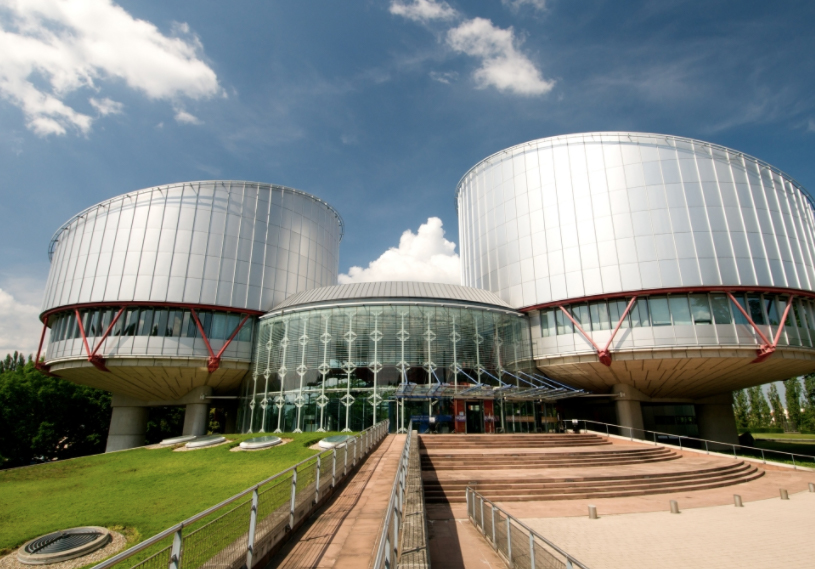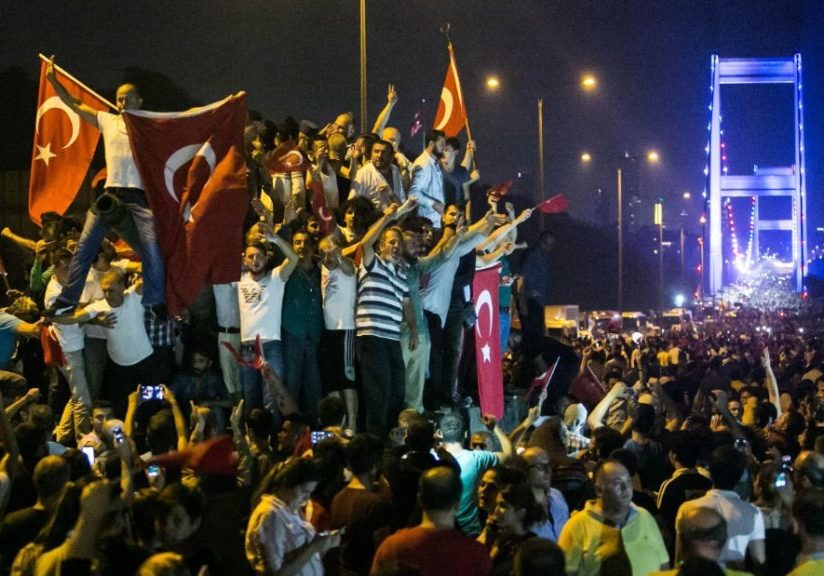
Jan 23, 2019
The ICJ and Amnesty International–Canada, have intervened in appeal proceedings before the Supreme Court of Canada in the Case Araya et al versus Nevsun Resources Ltd on appeal from the British Columbia Court of Appeal.
This case concerns a civil suit by Eritrean refugees against Nevsun for its involvement in the commission of forced labour, slavery, torture and other serious breaches of international law against them and many other victim. It is being heard today (23 January).
The joint intervention sets out the basis of the right to an effective remedy under international law and the importance of giving effect to that right in the proceedings of the case and in the development of common law in Canada.
The proceedings before the Supreme Court originate in an appeal by the defendant company Nevsun Resources Ltd against the British Columbia Court of Appeal’s judgment of 2017 which upheld the rights of claimants to sue in Canada.
The company argues that the “act of State” doctrine precludes Canadian courts from sitting to judge the lawfulness or validity of sovereign acts of foreign states, in this case the implementation of Eritrean National Service Programme, within the territory of that state.
The alleged forced labour, slavery and torture had been committed in this context. The company also contends that the claimants’ suit is based on allegations of breach of customary international law rules applicable only to States and which are not recognized under Canadian tort law as applicable to companies.
The ICJ and AI-Canada argue that the development of common law doctrines of judicial abstention and causes of action should be consistent with the right to an effective remedy for human rights violations as protected by international law and the Canadian Charter of Rights and Freedoms. In this line, the company’s grounds of appeal should be rejected or, if accepted, should be made consistent with the full respect to the right of the claimants to an effective remedy.
The claim filed in 2015 argues that Nevsun Resources was involved in various ways in the practice of forced labour, slavery, torture, cruel, inhuman or degrading treatment, and crimes against humanity at the Bisha mine against hundreds of Eritreans who were conscripted into the Eritrean National Service Programe and forced to working in the mine operated jointly by Nevsun and Eritrean State companies.
The claimants, Gize Yebeyo Araya, Kesete Tekle Fshazion and Mihretab Yemane Tekle, three of those who were forced to work in the Bisha mine and fled the country to find refuge in Canada, sued Nevsun alleging private law torts and breaches of peremptory principles of international law (forced labour, slavery, torture, inhuman or degrading treatment, and crimes against humanity).
Contact:
Carlos Lopez, ICJ Senior Legal Adviser, t: +41 22 979 38 16 ; e: carlos.lopez(a)icj.org
Canada-Nevsun AB-Advocacy-Legal submissions-2019-ENG (full text of appeal, in PDF)

Jan 15, 2019
The ICJ and CORE argue that mining giant Vedanta has a duty of care to villagers affected by its Zambian subsidiary’s copper mining activities.
The UK Supreme Court is to hear an appeal on 15 and 16 January from mining giant Vedanta Resources, in a case brought by 2,000 Zambian villagers who claim that their water and land have been poisoned by the firm’s operations.
The Court will consider evidence from the ICJ and corporate accountability group CORE, that under existing law and international standards, Vedanta owes a legal duty of care to the Zambian villagers. Acceptance of this principle would make the merits of the case arguable before UK Courts and allow for their jurisdiction to hear the case in future proceedings.
Vedanta is seeking to overturn a Court of Appeal ruling from last year, which upheld the High Court’s view that UK Courts would have jurisdiction to hear the case in significant part on the basis that a UK parent company may owe a duty of care to third parties affected by its subsidiaries’ activities.
The CORE and the ICJ submission to the Court argues that the Court of Appeal’s conclusion is supported by international standards on companies’ human rights and environmental responsibilities; UK government publications aimed at implementing those standards, including its Business & Human Rights Action Plan; and comparative law jurisprudence.
Vedanta has stated that its “sustainable development agenda” has been developed in line with the international standards to which the submission refers.
These standards are therefore relevant to the factual question of whether Vedanta controlled and/or had assumed responsibility for the activities of its Zambian subsidiary, Konkola.
The case is a pivotal test for the development in the UK, and across common law and possibly other jurisdictions of parent company liability for human rights and environmental harm.
Victims of corporate human rights abuses face multiple barriers in holding companies to account and securing access to justice.
A clear statement from the UK Supreme Court affirming the duty of care principle would assist communities who have been harmed by corporate activities, and would provide an important affirmation of the scope of parent companies’ obligations.
Contact
Carlos Lopez, ICJ Senior Legal Adviser, t: +41 22 979 3816 ; e: carlos.lopez(a)icj.org
UK-Intervention-ICJ-CORE-Advocacy-legal submission-2019-ENG (full submission in PDF)

Sep 27, 2018
The ICJ intervened in the case Nahhas and Hadri v Belgium in front of the European Court for Human Rights in a case of a Syrian family applying for a visa at a Belgian embassy in Beirut.
The ICJ together with partner organisations (DCR, ECRE, AIRE Centre) submitted that there is an extra-territorial jurisdiction over persons when a state is issuing visa at its embassy, and that there might be positive obligations for the States to issue such visa when refusal would leave the applicants at a real risk of exposure to violations of Article 3 ECHR. Best interests of the child must underpin all decisions taken by the state.
In particular:
- Jurisdiction exists in a number of extra-territorial situations, including where the State exercises authority or control over persons, including decisions of diplomatic and consular personnel on the issuance of visas to third country nationals.
- State responsibility may thus be engaged when refusing treatment of a visa application, in circumstances where the State is or ought to be aware that applicant if returned faces a real risk of serious Convention human rights violations, in the absence of available alternatives that would prevent such outcome.
- To comply with their obligations under the Convention, Contracting States are prohibited from refusing to issue visas to travel to their territory when requested by those who have an arguable claim that he or she is at real risk of an Article 3 violation in a third State. This is particularly the case if no other legal route to safety exists and where if denied such visas, refusal would leave the applicants at a real risk of exposure (whether directly or indirectly) to violations of Article 3 in the third State and the Contracting State from which the visa is requested has (or ought to have) knowledge of the risks in question.
- Article 3 of the Convention read in the light of Article 3, 22 and 37 of the UNCRC requires that the best interests of the child underpin all decisions taken by Contracting States with regard to children, and that Contracting states ensure the child’s protection and give separate consideration to the child’s interest. These standards apply to decisions on visa applications made by children and their parents at the embassy of a Contracting State.
Please find the full intervention here:Belgium-Nahhas Intervention-Advocacy-Legal Submission-2018-ENG

Sep 26, 2018
Today, the ICJ has presented a third party intervention before the European Court of Human Rights in Alayif Hasan oglu Hasanov v. Azerbaijan case.
In its submissions, the ICJ stresses that, while lawyers must perform their professional functions in conformity with ethical standards, the systems and procedures in respect of conditions of service, including in respect of admission to the profession and discipline, must not enforce such obligations in a way that impairs the exercise of human rights by lawyers or their capacity to effectively represent their clients.
The ICJ presented the submissions based on the jurisprudence of this Court as well as international standards governing the legal profession.
In particular, the submission addressed permissible restrictions of lawyers’ rights to respect for private (including professional) life under article 8 ECHR and to freedom of expression under article 10 ECHR, as well as the procedural safeguards required to apply such restrictions under article 6 ECHR.
Finally, the submission set out key findings of a recent ICJ fact-finding mission to assess the compliance of the governance of the legal profession in Azerbaijan with international law and standards.
Additional information:
Questions to the parties are available at http://hudoc.echr.coe.int/eng?i=001-184367
“Defenseless Defenders: Systemic Problems in the Legal Profession of Azerbaijan” – ICJ report in Azeri, Russian and English.
Azerbaijan-ICJ submission to ECHR-legal submission-2018-ENG – Submission in English.

Jul 5, 2018
On 25 June, the ICJ and Human Rights Joint Platform (IHOP) filed their joint submission to the UN Committee against Torture (Committee).
The Committee will consider it during the adoption of a list of issues prior to reporting (LOIPR) for the examination of the Fifth Periodic Report of Turkey under Article 19 of the Convention against Torture and Other Cruel, Inhuman or Degrading Treatment or Punishment (CAT).
During its 65th session, from 12 November to 7 December 2018, the Committee will prepare and adopt a LOIPR on Turkey.
Once adopted, the LOIPR will be transmitted to the State party. Turkey’s formal response to the LOIPR will then constitute its Fifth Periodic Report under article 19 of the Convention.
The ICJ and IHOP’s joint submission to the Committee highlights a number of ongoing concerns with respect to the country’s implementation of and compliance with the provisions of the CAT.
In addition, the joint submissions formulates certain questions and recommends that the Committee should include them in its LOIPR and address them to the Government of Turkey, including on the following pressing issues:
- allegations of abduction;
- immunity from prosecution for torture and cruel, inhuman or degrading treatment or punishment;
- remedies and reparations for victims of torture;
- fundamental legal safeguards and access to a lawyer;
- conditions of detention;
- civil society organizations; and
- national human rights institution and national preventive mechanism.
Turkey-LOIPR-ICJ&IHOP-June2018-final (download the submission)
Turkey-LOIPR-ICJ&IHOP-June2018-statement-ENG
 This project is funded by the European Union
This project is funded by the European Union
* This article does not necessarily reflect the view of the European Union










